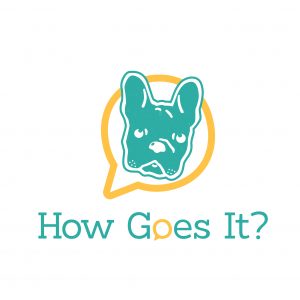Get Involved

 Become a Thought Partner
Become a Thought Partner
Partner with us to produce thought leadership that moves the needle on behavioral healthcare.
 Other options to get involved
Other options to get involved

Thank you!
We received your information and will be in contact soon!
Get Involved

 Grantmaking
Grantmaking
We fund organizations and projects which disrupt our current behavioral health space and create impact at the individual, organizational, and societal levels.
 Participatory Funds
Participatory Funds
Our participatory funds alter traditional grantmaking by shifting power
to impacted communities to direct resources and make funding decisions.
 Special Grant Programs
Special Grant Programs
We build public and private partnerships to administer grant dollars toward targeted programs.
 Program Related Investments
Program Related Investments
We provide funds at below-market interest rates that can be particularly useful to start, grow, or sustain a program, or when results cannot be achieved with grant dollars alone.
Get Involved

 Tia Burroughs Clayton, MSS
Tia Burroughs Clayton, MSS
Learning and Community Impact Consultant
Add some text here
 Alyson Ferguson, MPH
Alyson Ferguson, MPH
Chief Operating Officer
Contact Alyson about grantmaking, program related investments, and the paper series.
 Samantha Matlin, PhD
Samantha Matlin, PhD
Senior Learning & Community Impact Consultant
Contact Samantha about program planning and evaluation consulting services.
 Caitlin O'Brien, MPH
Caitlin O'Brien, MPH
Director of Learning & Community Impact
Contact Caitlin about the Community Fund for Immigrant Wellness, the Annual Innovation Award, and trauma-informed programming.
 Joe Pyle, MA
Joe Pyle, MA
President
Contact Joe about partnership opportunities, thought leadership, and the Foundation’s property.
 Bridget Talone, MFA
Bridget Talone, MFA
Grants Manager for Learning and Community Impact
Add some text here
Ciho Solutions, LLC

Program Website
Year:
2018State:
GeorgiaWinner Status:
ApplicantProgram Type:
ScreeningTarget Population:
AdultsSetting:
Online Community/ToolProgram Description
The How Goes It? app aims to bridge the disconnect between the hurting and the caring so that the hurting can receive support when needed. Answering the question “How are you” can be challenging when the honest truth is “not very well”, “depressed” or “anxious”. What’s even harder when you are in a dark place is to reach out to friends or family to let them know you are struggling. We are building a mobile app that will let you set a number 1-10 as an answer to “how goes it?”. It doesn’t matter what your it is – depression, anxiety, addiction, weight loss… Friends you trust to see your number can be notified when it falls below a certain threshold. When they receive the notification that you are in need of help they can reach out to you and respond in the way you’ve arranged with them.
Creativity
The creativity of the app is in its intentional simplicity. The goal is to minimize friction in help-seeking and maximizing the range of use case scenarios, even outside the mental health field. In our research we found many useful apps aiding in mental health but most of them were either complicated to use or assumed user wanted to get support from strangers instead of his/her existing support network. Applications: * Therapist – patient relationship * Person looking to support a friend * Person in need of support from his/her friends * Support circle such as church small group, book club etc. * AA and other addiction recovery groups * Remote teams and organizations
Leadership
We will prepare easy-to-digest, well designed short white paper and a brief video for each of the use cases mentioned in the Creativity segment above and make those prominently available on the website. This will make evident the value the app can bring. It will also allow us to disseminate the information to therapists (for example via our friends at thero.org), churches, college counselling centers, AA group hosts etc. The support materials we plan to write: * How to open up about your struggle to a friend? * How to support a friend that’s hurting? * What to do when you don’t know how to help a friend? * How to connect a friend to resources and professionals when that is needed? * What to do when you opened up to a friend and didn’t get the support you feel you needed?
Sustainability
From the idea inception How Goes It? app has been a community project, with leadership from Andrej Ciho. It was first presented in the WP Hugs online community and a group of developers, providers, and mental health consumers quickly emerged, committed to help make the idea a reality by contributing time, talent and counsel. Resources * Developers and resources from Ciho Solutions, LLC * Designers and resources from Dark Square, LLC * Developers from the WP Hugs community Partner organizations that have vested interest: * Paul Berry, Psy.D., Executive Director of Thero * WP Hugs
Replicability
The healing results can be replicated easily because 1) The app design and technology used allows for easy scaling 2) The white papers & videos explaining the possible uses of our app will equip others to maximize the value they get from using the app.
Results/Outcomes
Short term outcomes * Relief and support for the person struggling * Sense of connectedness for those providing the support Long term outcomes * Suicide prevention * Improved quality of life in mental and emotional health by getting support in times of need * More connectedness











